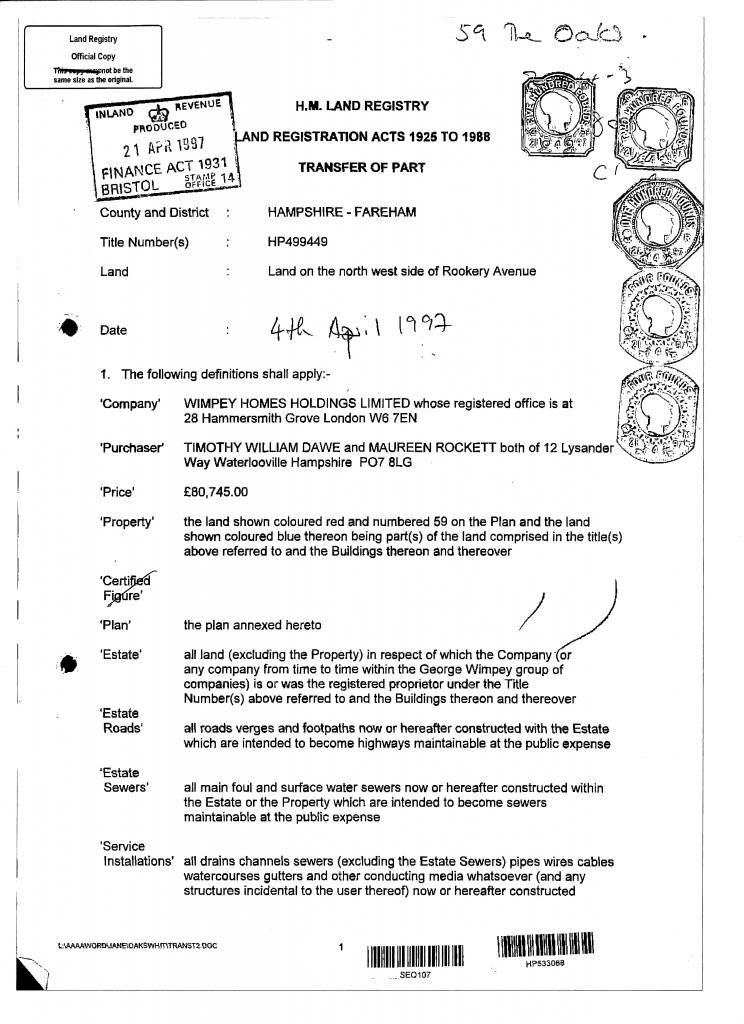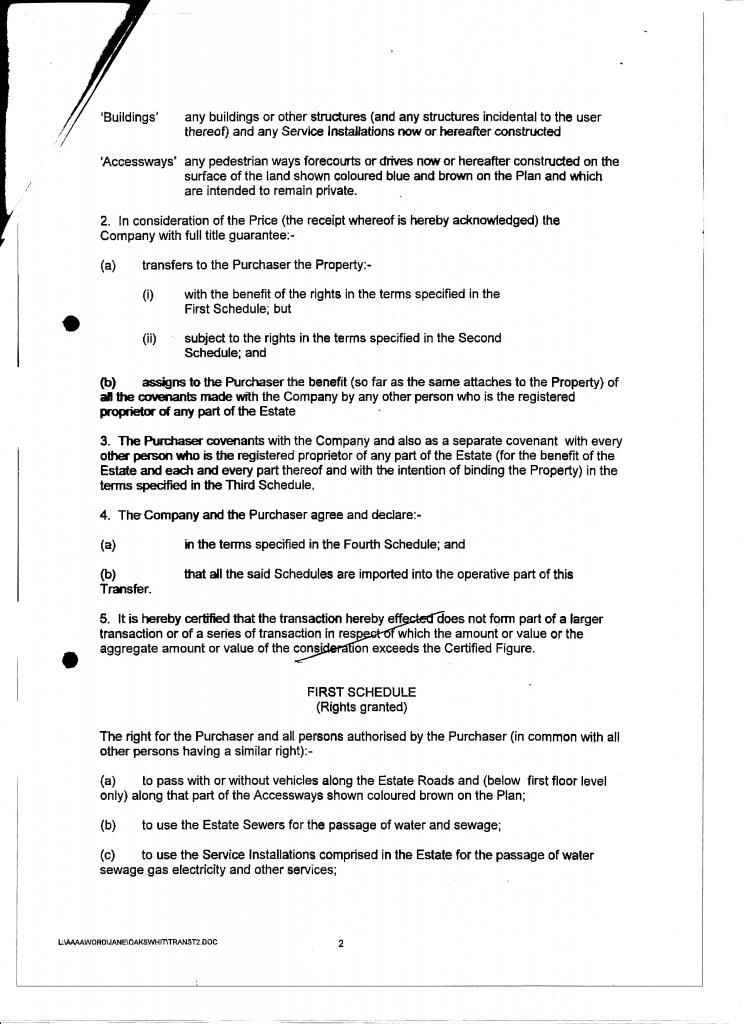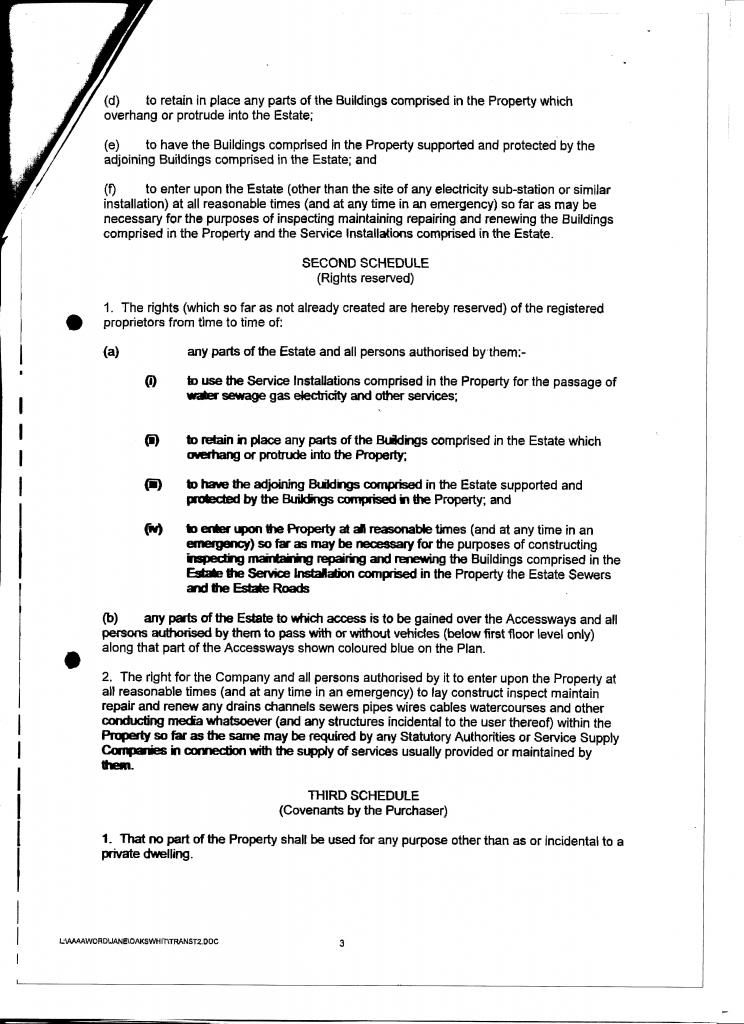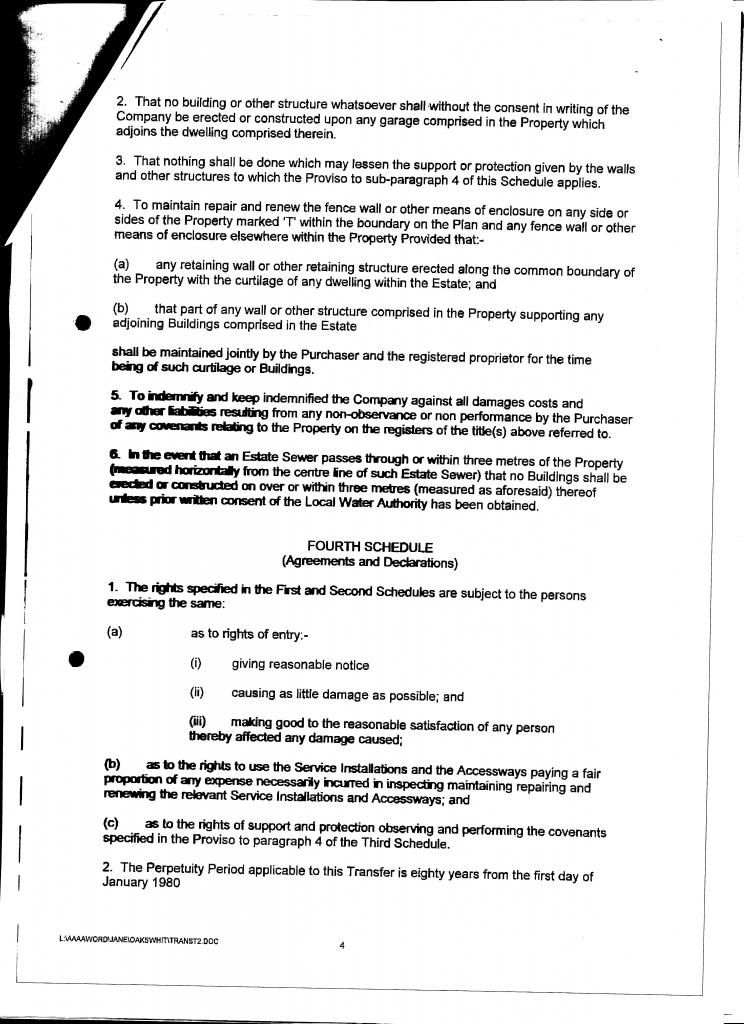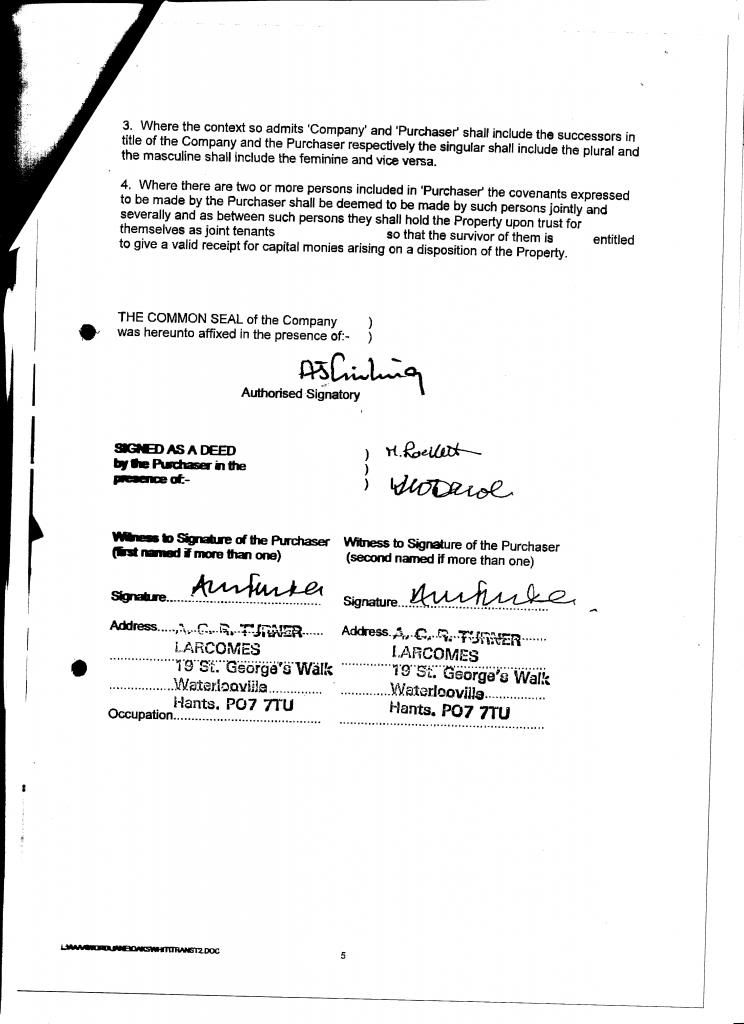Hi, just wondered if any one has ever had a restrictive covenant on there house?, I would like to build over our attached garage on our 15 year old house and it seems that the builder has put a restriction on this.
I have just got a copy of the first transfer from Land Registry 4th April 1997 made between Wimpey Homes Holding ltd and the first owner and it contains some restrictive covenants(6 in total).
Covenant No 2:- That no building or other structure whatsoever without the consent in writing of the Company be erected or constructed upon any garage comprised in the property which adjoins the dwelling comprised therein.
So to put this in basic terms, do I have to see if the Company:- Wimpey Homes Holdings is still trading? and then see if they will give consent in writing to build over our garage?
Any advice will be greatly appreciated.
I have just got a copy of the first transfer from Land Registry 4th April 1997 made between Wimpey Homes Holding ltd and the first owner and it contains some restrictive covenants(6 in total).
Covenant No 2:- That no building or other structure whatsoever without the consent in writing of the Company be erected or constructed upon any garage comprised in the property which adjoins the dwelling comprised therein.
So to put this in basic terms, do I have to see if the Company:- Wimpey Homes Holdings is still trading? and then see if they will give consent in writing to build over our garage?
Any advice will be greatly appreciated.


